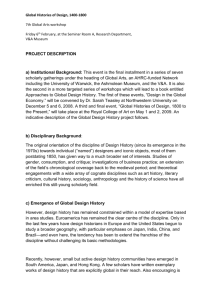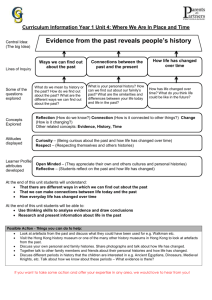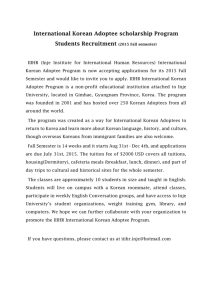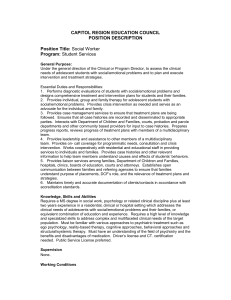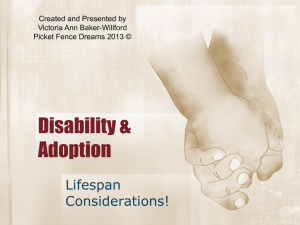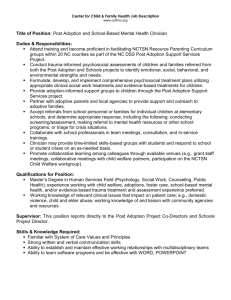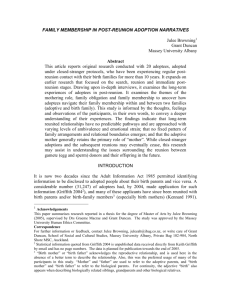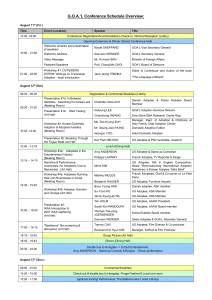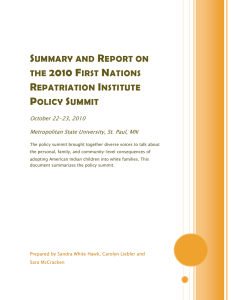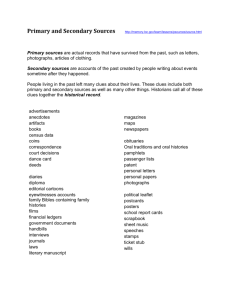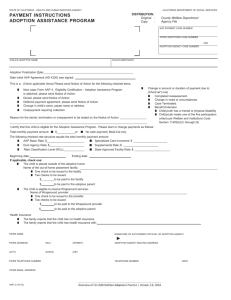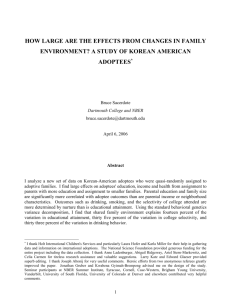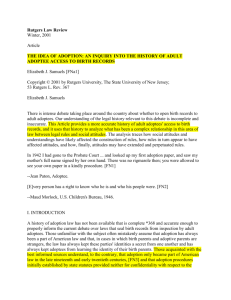Adoption and Family Health Histories On my doctor`s medical forms I
advertisement
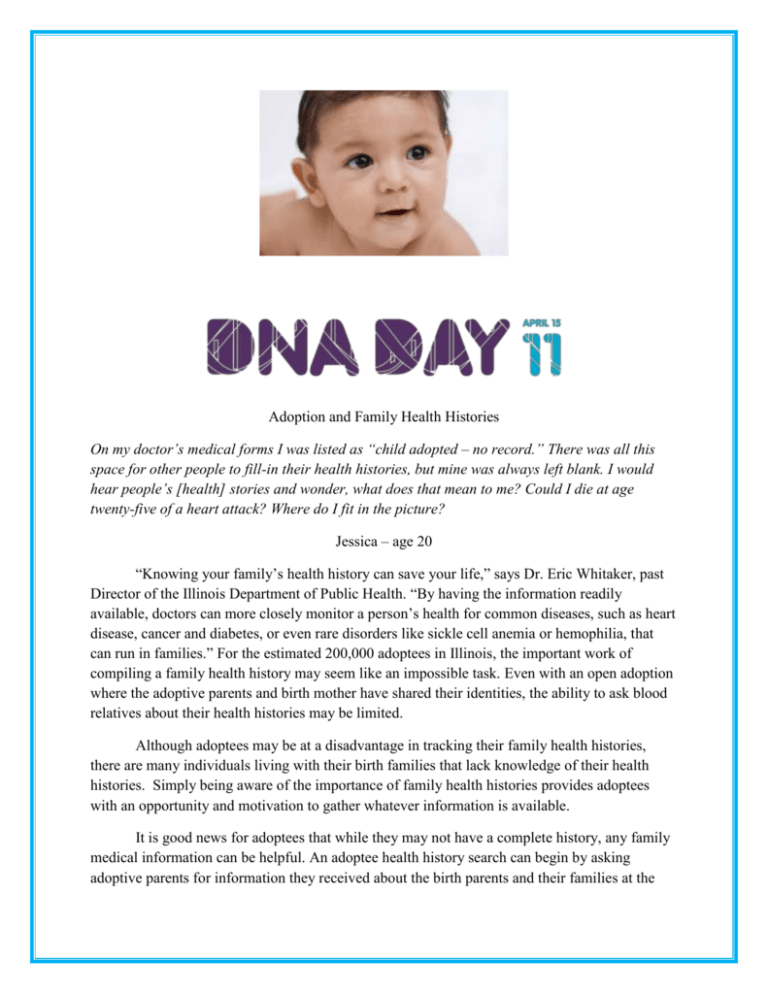
Adoption and Family Health Histories On my doctor’s medical forms I was listed as “child adopted – no record.” There was all this space for other people to fill-in their health histories, but mine was always left blank. I would hear people’s [health] stories and wonder, what does that mean to me? Could I die at age twenty-five of a heart attack? Where do I fit in the picture? Jessica – age 20 “Knowing your family’s health history can save your life,” says Dr. Eric Whitaker, past Director of the Illinois Department of Public Health. “By having the information readily available, doctors can more closely monitor a person’s health for common diseases, such as heart disease, cancer and diabetes, or even rare disorders like sickle cell anemia or hemophilia, that can run in families.” For the estimated 200,000 adoptees in Illinois, the important work of compiling a family health history may seem like an impossible task. Even with an open adoption where the adoptive parents and birth mother have shared their identities, the ability to ask blood relatives about their health histories may be limited. Although adoptees may be at a disadvantage in tracking their family health histories, there are many individuals living with their birth families that lack knowledge of their health histories. Simply being aware of the importance of family health histories provides adoptees with an opportunity and motivation to gather whatever information is available. It is good news for adoptees that while they may not have a complete history, any family medical information can be helpful. An adoptee health history search can begin by asking adoptive parents for information they received about the birth parents and their families at the time of the adoption. By Illinois law, if known, non-identifying information including race, ethnicity, country of origin, and detailed medical and mental health histories is to be reported to the adoptive parents by the placement date. In adoptions with private or public agencies, adult adoptees can check with the agencies to see what health history and other non-identifying information they have on file. Adoptees also have the option to search through a confidential intermediary service. In open adoptions, depending on the situation, there may be opportunities for adoptees to track their family health histories. If adoptees have a relationship with the birth parents or are aware of their identities, they may feel comfortable asking them health history questions. The Illinois Adoption Registry can be an excellent resource for adoptees. Updated medical information may be exchanged confidentially if the adult adoptee and a birth parent or an adult birth sibling that was also adopted, join the registry and are mutually consenting. Additionally if a birth parent is deceased then an adult birth sibling that remained with the birth family can exchange medical information. With mutual consent the adult adoptee could potentially receive health information from both sides of the birth family. Adoptive parents may receive medical information from consenting birthparents until the adoptee is twenty-one and legal guardians may also receive medical information in the adoptee’s behalf. But all of this is contingent on registration and participation in the registry. Continuing birth family participation in the registry can be a real plus since most medical problems do not manifest until people are older. A new Illinois law makes it easier for adoptees to identify their birth parents. According to the law, adoptees born before January 1, 1946 can now request a non-certified copy of their original birth certificate, and as of November 15, 2011, all adult adoptees (even those born on or after January 1, 1946) may request birth certificates. It is advisable for adoptees to consult with an adoption professional and/or confidential intermediary prior to deciding whether to contact birth parents. Even if an adoptee only knows their racial and ethnic heritage, that information can be beneficial. Just like medical problems that run in families, some diseases are more common in certain ethnicities. Genetic tests are available to screen for many of these diseases. Genetic ancestry testing is available commercially, which can help individuals identify their countries or regions of origin, as well as ethnicity in some cases. However, this type of testing is not considered “diagnostic” and should be used for educational purposes only. Other useful family health history information can come from the adoptive family. Because of the importance of diet and lifestyle, adoptees may want to consider tracking two health histories. It is vital that adoptees tell their physicians that they are adopted and provide them with whatever medical information they have. A skilled physician can respond to questions and concerns and offer tests and screenings when appropriate. Although it may take some effort, there is no reason why adoptees cannot realize the many benefits of family health histories. Additional links to adoption resources and information: Child Welfare Information Gateway National Adoption Information Clearinghouse Chicago Tribune Article about Adoption Law (Thanks to Marsha Raynes, Director of Project Esther: The Chicago Jewish Adoption Network of Jewish Child and Family Services for sharing her considerable knowledge and helpful insights. And with appreciation to Elyse Flack, Director of Stars of David International, for her contributions to the project.)
